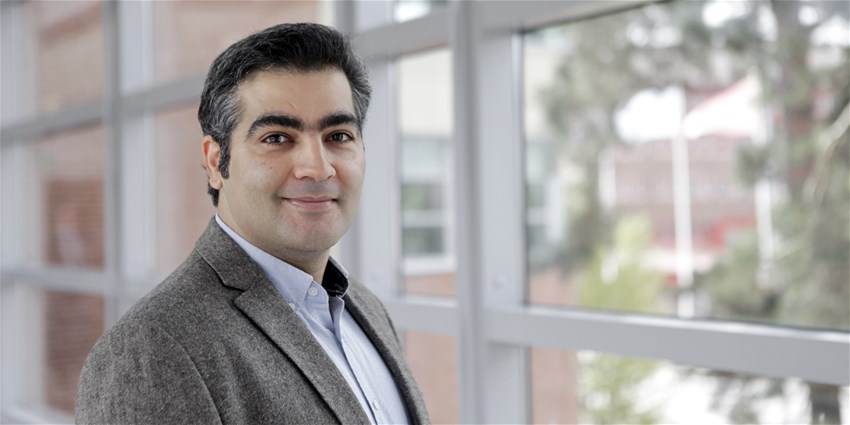Dr. Esmaeil Sadeghi on Metal Additive Manufacturing

Dr. Esmaeil Sadeghi is a member of the Division of Subtractive and Additive Manufacturing at University West. His research interests focus on powder bed fusion additive manufacturing and high-temperature corrosion fatigue. He is Programme Director of the Master in Metal Additive Manufacturing.
What makes this programme different from other additive manufacturing (AM) programmes?
The advanced equipment we have available makes a great difference. Our Production Technology Centre has the largest and newest manufacturing labs in Sweden. Some of the latest AM equipment for monitoring and testing is here. Not so many universities around the world have these resources.
Furthermore, the programme includes an optional industry placement in Europe, Asia or South America to increase the professional experience and network of students. Students can combine the industry placement course with their thesis if they desire, for an in-company experience of 6-12 months. This is a very good period for students to make their own connections within the industry and build their own future for their career.
The programme’s close connection to industry means all research projects are based in real-world industry problems. Through this experience, graduates can transition directly into careers with recognised companies. They are also able to continue studies or research as PhDs or researchers.
Larger universities may not be able to offer this high level of integration with industry.
Why does the programme choose to focus on metal additive manufacturing?
University West has an extensive history of research on the topic – over 15 years’ worth. We are specialists in this field and home to world-renowned senior researchers in this area. This programme is yet another way we specifically dedicate time and resources to this research expertise.
Our university is located within one of the most engineering-dense regions of the country and is linked with these major companies: GKN Aerospace, NEVS, CEVT, Volvo and Arcam-EBM to name a few. There is a great demand from these companies to train engineers in this field.
Why is this programme important to the industry?
AM is seen as one of the main advancements in manufacturing right now. The field is developing very quickly. Every month you see new materials, new machines – it’s staggering.
At University West, we keep the pace with this industry. Swedish companies have been very engaged in developing and remaining active in this programme. They are involved in the programme as a whole, down to each course, where they facilitate workshops, guest lecturers, company visits and so on.
What are some interesting AM projects/research going on now at University West?
We are working together with industries and key companies in Sweden to research the entire chain of AM, including new powder and alloy development, various AM processes like powder bed fusion (PBF) and directed energy deposition (DED), post processing, materials testing, qualification of materials, and materials performance like fatigue.
What type of students will find this programme most interesting?
Of course students with a bachelor in materials science, mechanical engineering, or manufacturing engineering will be interested to deepen their knowledge in this area. It will be particularly well suited to those interested in international and creative environments – either international students who hope to work in Swedish industry or Swedish students who aim to sharpen their multicultural skills.
Students in this programme will start a project defined by a supervisor from industry and academia, but they will also design and lead a project of their own. This gives them the opportunity to be creative. For example, one student might come up with an aerospace application, leading the project starting from design and including the materials, manufacturing process, etc. There are so many possibilities in this field.


